The new French government, which President François Hollande announced on Monday would be a “government of combat”, is one that has little changed on that it replaces, scaling down the number of cabinet ministers from 20 to 16, the lowest number in decades, while keeping most of the last cabinet’s heavyweights.
The cabinet's composition is the result of difficult and protracted negotiations that began well before the appointment earlier this week of Manuel Valls, 51, as France's new prime minister after Hollande's ruling Socialist Party suffered a predicted debacle in nationwide municipal elections last Sunday.
There are two new arrivals, and notably Ségolène Royal, the socialist presidential election candidate who lost to Nicolas Sarkozy in 2007, and who is Hollande’s former partner by whom he has four children. Royal, who is president of the Poitou-Charentes Regional Council, has been given the major Ministry of Ecology, Sustainable Development and Energy, which puts her in second place in the pecking order of ministers (behind Laurent Fabius, who keeps the foreign ministry). The other new arrival is François Rebsamen, a Senator and mayor of Dijon, and a close friend of Hollande’s, who was appointed Minister of Labour, Employment and Social Dialogue.
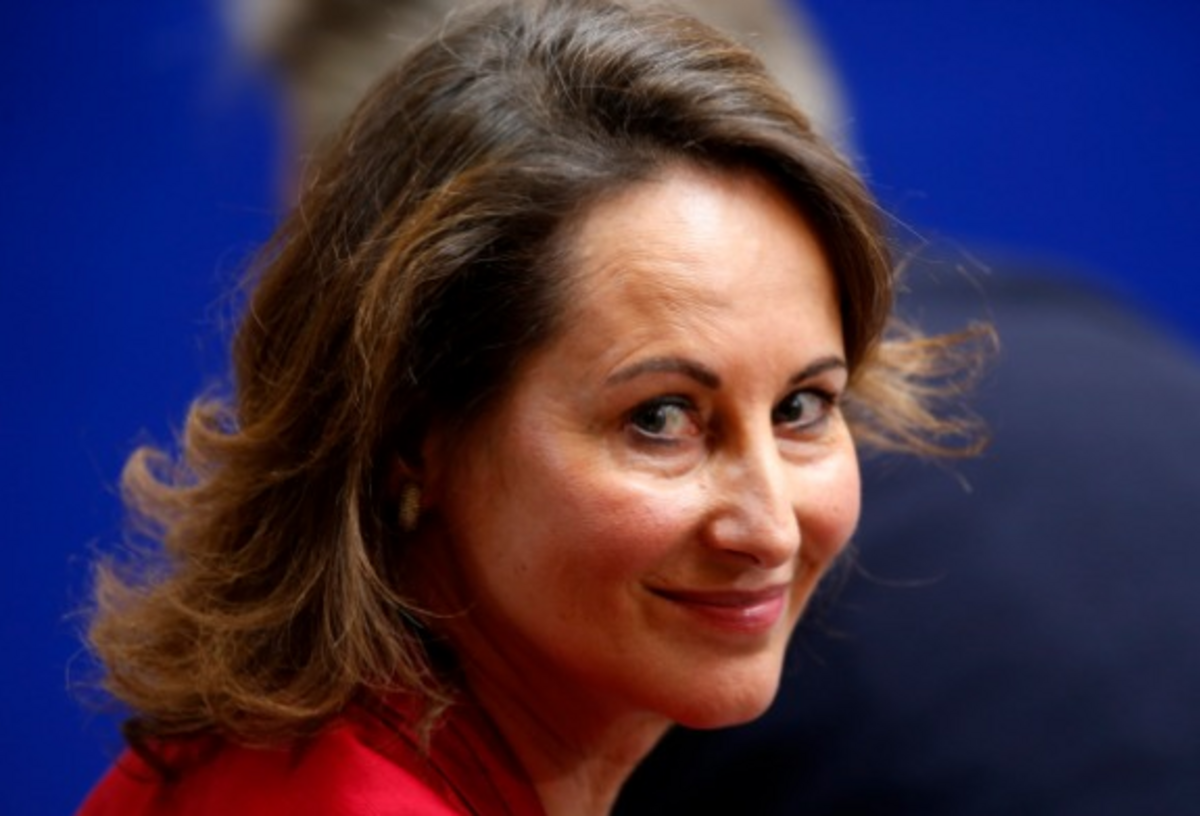
Two former ministers have not been reappointed. These are Pierre Moscovici, whose finance and economy ministry has been split into two - former labour minister Michel Sapin takes finance while economy has been added to industry minister Arnaud Montebourg’s brief - and education minister Vincent Peillon. The new team of ministers is composed of an equal number of men and women (see the complete list of ministers on page 3).
Meanwhile, the executive of the Green alliance party EELV voted on Tuesday to end its participation in the socialist government. Earlier this week, the party’s two ministers under Ayrault, housing minister Cécile Duflot and secretary of state for international development, Pascal Canfin, refused to return to government under Valls because of policy differences.
During the tense negotiations in the run-up to the announcement of the new cabinet on Wednesday, a number of Hollande's allies in the preceding government of Jean-Marc Ayrault upped the pressure by letting it be known that they were holding a “secret” meeting to ensure that Valls, who is regarded as a potential future candidate for the presidency, would not water down their influence in the new government. The tactic paid off, for they have either retained their ministries or been given others just as important. Among them, Jean-Yves Le Drian has been reappointed defence minister, while Stéphane Le Foll has kept his post as agriculture minister. Another, former labour minister Michel Sapin, has been appointed finance minister. Meanwhile, the new labour minister, François Rebsamen, is a close friend and ally of Hollande.
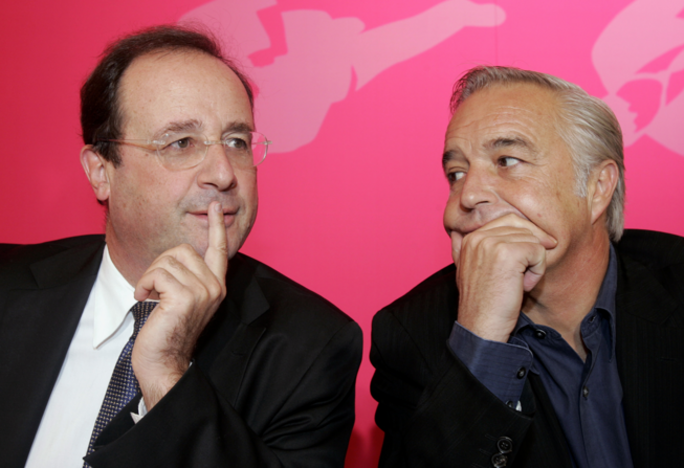
Enlargement : Illustration 2

Valls above all failed in his attempt to hand the interior ministry to one of his own allies, Jean-Jacques Urvoas, a socialist Member of Parliament (MP) for a constituency in Brittany and who played a significant part in building Valls’s network among the hierarchy of the police after the latter was appointed interior minister in Hollande’s first government in 2012. While Hollande, during the negotiations this week over the composition of the new government, had to give up on his push to appoint Rebsamen as the new interior minister, it is another of his allies, Bernard Cazeneuve, who got the job.
Cazeneuve, budget minister in the previous government, is a longstanding friend of foreign minister Laurent Fabius, but has enjoyed good relations with Hollande for some years. Cazeneuve –who until entering government served as MP for, and mayor of, the channel port of Cherbourg – was spokesman for Hollande during the 2012 presidential election campaign. After Hollande’s election, he was appointed junior minister in charge of European affairs, and later, on Hollande’s demand, budget minister following the resignation of his disgraced predecessor Jérôme Cahuzac. Cazeneuve has since then led the programme of drastic budget cuts introduced under former prime minister Ayrault, deftly managing to escape clashing with his ministerial colleagues over the belt-tightening while also conserving Hollande’s confidence.
Among the list of Hollande allies in the new government is Ségolène Royal, handed the super-minstry of ecology. While not part of the president’s close guard, and despite her longstanding independent political career and the complications of her personal relationship with Hollande, the two have maintained close ties.
Manuel Valls has always been surrounded by a very small group of dedicated allies within the Socialist Party, unlike others who have well-oiled task forces to steer their ambitions. His only true close ally is Urvoas, and now that he hasn’t managed to place him as interior minister he’s left with no others in his cabinet. However, he has a certain degree of support from reappointed industry minister Arnaud Montebourg and the new education minister and figurehead of the leftist current in the Socialist Party, Benoît Hamon, culture minister Aurélie Filippetti and health and social affairs minister Marisol Touraine, all of whom lobbied in favour of Valls’s nomination as prime minister for, variously, ideological and tactical reasons.
The losers in the cabinet reshuffle are those associated with the clan that had surrounded the disgraced former International Monetary Fund chief Dominique Strauss-Kahn, once a socialist presidential hopeful until his arrest in New York over an alleged sex assault on a hotel chambermaid. These include former finance minister Pierre Moscovici, who it is known Hollande wanted removed from government, although there are rumours of his possible appointment to the European Commission. Another is Geneviève Fioraso, former higher education and research minister (she is an MP for the eastern town of Grenoble which elected the Green party and radical-left Parti de Gauche to run its council in Sunday’s municipal elections) who now exits government, along with former foreign trade minister Nicole Bricq.
More power for the Left
Ségolène Royal, 60, returns to government for the first time since 2002, when she served as junior minister responsible for Family Affairs, Children and the Handicapped under socialist prime minister Lionel Jospin (prior to that she had held two ministries, including that of the environement). Royal lost her bid to become an MP for the Atlantic coastal town of La Rochelle during the 2012 legislative elections (when she was notably the target of a Tweet in favour of her dissident socialist rival by Hollande’s then-partner Valérie Trierweiler). That scuppered her ambition to become president (akin to speaker) of the National Assembly, the French lower house. She fell back on her post as president of the Poitou-Charentes Regional Council, which she has managed since 2004, and was named vice-president of France’s Public Investment Bank which helps finance developing companies.
She has displayed a consistent but cautious support for Hollande’s government since 2012, although she has made known her criticisms of the indiscipline among ministers that dogged former prime minister Jean-Marc Ayrault’s time in office.
The other new face, François Rebsamen, 62, had for a long time lobbied behind the scenes to become interior minister, but Valls was firmly opposed to the idea. The Senator and mayor of Dijon previously led the socialist group in the Senate, but markedly without enthusiasm. He brings little specialized experience to his post as Minister of Labour, Employment and Social Dialogue - a crucial role as Hollande places great faith in negotiation and dialogue but also an uncomfortable one as he will also have to comment the monthly unemployment figures.
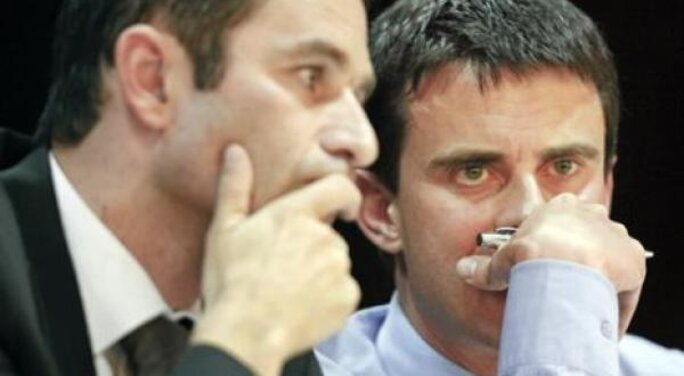
Enlargement : Illustration 3

As for the new education minister, Benoît Hamon, 46, he appears to have been thanked for his discipline as leader of the leftist Socialist Party current in not upsetting the boat for Hollande, who stands to his Right, but also for his competence in his previous post as the finance ministry’s junior minister responsible for the social economy. He brings significant political knowledge of the education environment (via his involvement with student unions and institutions) to a ministry that is set to continue with the reforms begun but uncompleted by his predecessor, Vincent Peillon. His promotion can also be seen as a tactical move by Valls to rebalance the Left-Right makeup of his government, and which will ease support for it from the 20 or so MPs who are Hamon’s allies.
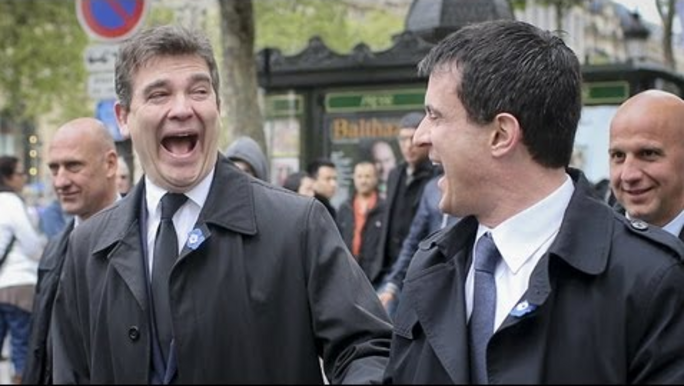
Reappointed minister Arnaud Montebourg, 51, a self-styled leftist firebrand who champions patriotic consumerism and who previously made his mark as the high priest of deglobalisation, has been given the increased powers that he sought as industry minister by becoming economy, industry and digital affairs minister. This was a deal he concluded with Valls in negotiations between the two men which began several weeks ago, and the counterparty was his support and lobbying for Valls’s nomination as prime minister. Last week, between the two rounds of the local elections, Montebourg wrote to Hollande to demand a reorientation of government policies and the departure of Jean-Marc Ayrault as prime minister, for whom he had no admiration, and even threatening to leave government if Ayrault was maintained.
Montebourg is also hopeful that Valls will introduce a tougher stance towards the EU, notably in opposing austerity demands. He regularly reminds others that Valls came out against the European constitution treaty in 2005 when it was put to a referendum in France, before eventually obeying his party’s line in favour.
While he might hope to have a degree of liberty on economic policies because of Valls’s lack of schooling in the field, he will nevertheless have to compromise with the new finance minister, Hollande ally and former labour minister Michel Sapin, who is fiercely in favour of budgetary discipline.
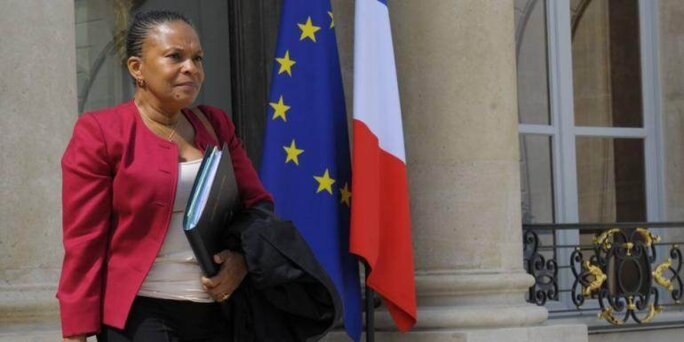
Enlargement : Illustration 5

Meanwhile, the return of Christiane Taubira, 62, to her post as justice minister was far from certain, and a number of well-informed sources had suggested that she had decided she could not serve under Valls, with whom she had fallen out over a number of issues during the last government when he was interior minister (including her wish to make the public prosecutor’s office independent of government, and her proposed reform of criminal sentencing laws, which the Right have criticized as being soft on crime). Taubira, who championed the law now introduced that allows same-sex marriages, had become a major target of criticism from the Right, and Hollande appears to have been influential in convincing her to remain justice minister and not to offer the conservative opposition another political scalp.
-------------------------
- See the full list of the new French cabinet on Page 3.
This article is an abridged version of Mediapart's report on the new French cabinet published in French, which can be found here. A Spanish version can be found here.
English version by Graham Tearse
The new French government in full:
Senior ministers:
- Laurent FABIUS, Minister of Foreign Afffairs and International Development
- Ségolène ROYAL, Minister of Ecology, Sustainable Development and Energy
- Benoît HAMON, Minister of Education, Higher Education and Research
- Christiane TAUBIRA, Minister of Justice
- Michel SAPIN, Minister of Finance and Public Accounts
- Arnaud MONTEBOURG Minister of the Economy, Industry (Productive Recovery) and Digital Affairs
- Marisol TOURAINE, Minister of Health and Social Affairs
- François REBSAMEN, Minister of Labour, Employment and Social Dialogue
- Jean-Yves LE DRIAN, Minister of Defence
- Bernard CAZENEUVE, Minister of the Interior
- Najat VALLAUD-BELKACEM, Minister of Women’s Rights, Urban Affairs, Youth and Sport
- Marylise LEBRANCHU, Minister of Decentralisation, State Reform, and the Public Sector
- Aurélie FILIPPETTI, Minister of Culture and Communication
- Stéphane LE FOLL, Minister of Agriculture, the Agroalimentary Industry and Forests. Also named as official government spokesman.
- Sylvia PINEL, Minister of Housing and Equality for Regions
- George PAU-LANGEVIN, Minister for Overseas Territories
Junior ministers (appointed 9th April):
- Jean-Marie LE GUEN, Secretary of State for Relations with Parliament
- Harlem DÉSIR, Secretary of State for European Affairs
- Fleur PELLERIN, Secretary of State for Overseas Trade, French Citizens Abroad and Tourism
- Annick GIRARDIN, Secretary of State for Development and Francophone Culture
- Frédéric CUVILLIER, Secretary of State for Transport, the Sea and Fisheries
- Geneviève FIORASO, Secretary of State for Higher Education and Research
- Kader ARIF, Secretary of State for War Veterans
- Christian ECKERT, Secretary of State for the Budget
- Axelle LEMAIRE, Secretary of State for the Digital Economy
- Valérie FOURNEYRON, Secretary of State for Trade, Small Professional Businesses and for the Social Economy
- Thierry BRAILLARD, Secretary of State for Sport
- André VALLINI Secretary of State for Local Government Reform
- Laurence ROSSIGNOL Secretary of State for the Family and the Elderly
- Ségolène NEUVILLE Secretary of State for the Disabled and for the fight against Social Exclusion


